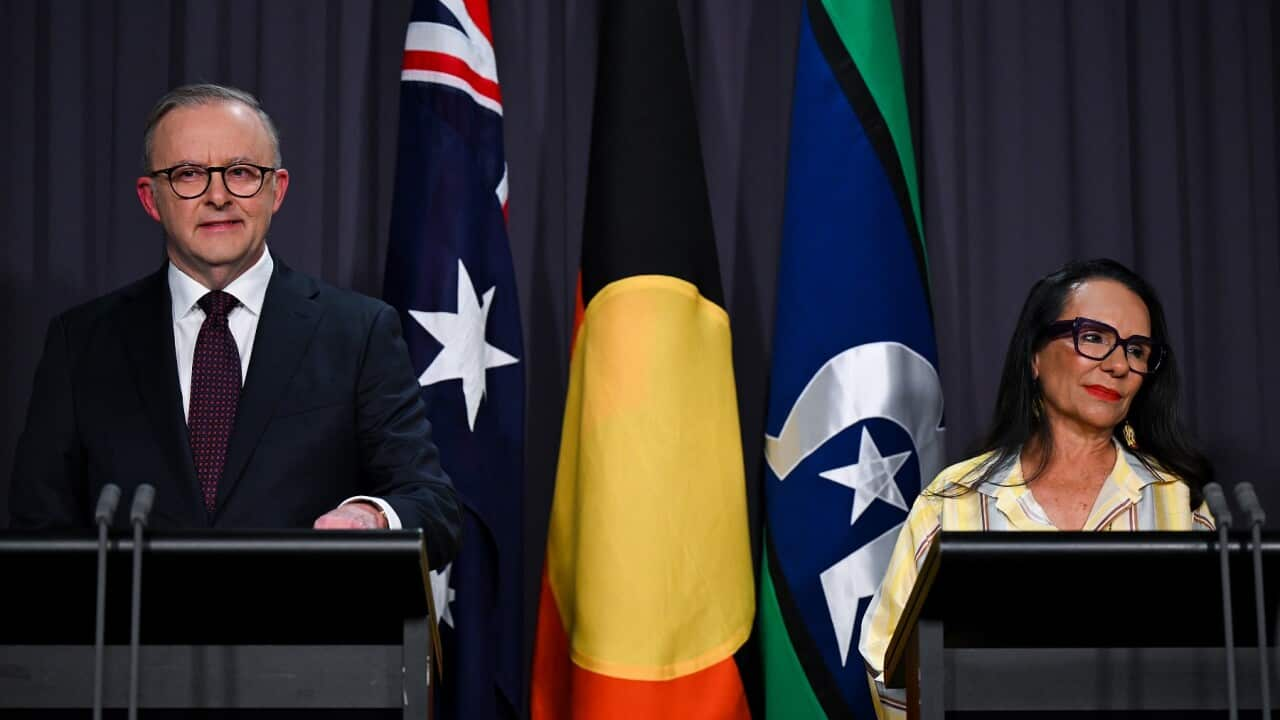TRANSCRIPT
Twelve months on from the failed Indigenous Voice referendum, progress on the three key elements of The Uluru Statement from the Heart - Voice, Treaty and Truth - now lies in the hands of state and territory governments.
Prime Minister Anthony Albanese says he backs this path forward.
"That is appropriate given there are different views and there is not one homogenous grouping around the country."
Across Australia, different jurisdictions are moving at their own pace.
Victoria is the most advanced.
It has the First People's Assembly - a democratically elected, independent body - tasked with negotiating a treaty with the state government.
Those talks are expected to begin next month.
Victoria also established The Yoorrook Justice Commission - the nation’s first formal Indigenous-led truth telling inquiry.
The commission has held hearings since 2022 - and its report is due to be published mid-way through next year.
Deputy chair of the Yoorrook Justice Commission, Sue-Anne Hunter says this truth telling process will inform recommendations to government, and a future treaty.
"For us as a nation I believe going forward we need the truth telling process to understand the past and we need to move forward together. We know the past has been quite divisive, without going into it, but how do we understand the past so we can move forward together?"
In Queensland, the government passed its Path to Treaty Act with bipartisan support in May 2023.
This initiated a Truth Telling and Healing inquiry, which commenced last July.
The inquiry is set to run for three years ... but the Liberal National opposition in Queensland now says it will repeal the legislation if it wins the state election this month.
Chair of the Truth Telling and Healing Inquiry in Queensland, Joshua Creamer says that would be a lost opportunity.
"It'd be particularly disappointing for those people who are prepared to share their stories and we've had a lot of people already across Queensland wanting to come along and particpate in the work of the inquiry and to lose that opportunity which, really, you can't say is ever going to come around again particularly in the lifetime of some of the people now."
And New South Wales has appointed commissioners for community consultation on what a truth and treaty process may look like.
But progress is slower in other states.
South Australia has an Indigenous Voice to Parliament.
But like Tasmania, there's no formal timeline or commitment from the government for a truth and treaty process.
Western Australia doesn't have plans for state treaty negotiations.
Instead, the government says its focused on "resolving Native Title matters".
In the Northern Territory, the new Country Liberal Party government has promised to scrap treaty plans.
And the ACT has committed funding for a truth telling process but no start date has been set.
A range of approaches ... to find a new way forward.













